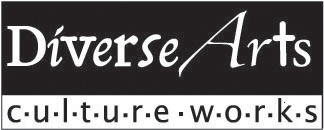Video Player Controls
Screen reader users:
Tab into the tool bar.
Then turn the virtual cursor/buffer off to enable pass-through mode.
For JAWS: Insert + Z.
For NVDA: Caps Lock + Space Bar.
For Window-Eyes: Ctrl + Shift + A.
Right and left arrow keys navigate tool bar controls.
Keyboard shortcuts are also available while in pass-through mode:
Alt Control P for play and pause.
Alt Control S for stop.
Alt control M for mute.
Alt control R doubles size of player.
Alt control T toggles focus between elapsed time and toolbar.
VoiceOver users: Use the Enable Player VoiceOver Access button to make the toolbar button text display and then use the Focus Toolbar button to jump into the toolbar. (VoiceOver with Safari 3, only. Safari 4 beta does not work with toolbar. Disable VoiceOver and use keyboard shortcuts.)
Interviewer: HL Blues Boy Hubbard again explains the social conditions of east Austin and east 11th Street after integration and the night Charlie’s Playhouse closes.
Hubbard: After integration, things got to a point where must of your whinos and alcoholics and drug addicts and things that was standing on the streets and all of this kind of stuff, start harassing the white youngsters that would come over there. They would break in their cars and all this kind of stuff. They would just walk up and strong arm them for money, you know, “Gimme your money” (laughs).
So it got to where the white kids just was afraid to come over to the east side. In fact, Charlie did all he could to protect him. He had a bouncer standing out there, Tom, who was 6’7”, 275 pounds, and he had a shotgun on his shoulder, but he could only do it right in the front of the place. He couldn’t go back to the alleys and all that kind of stuff, so the white kids…and it was the same thing up to Sam.
They had to just stop coming to the east side because what happened, basically, after integration, it got to the point where…if I black guy went to jail, he could get a lawyer too and get out, see, so it got to the point where the equality thing made the east side of town not afraid to go to the west side of town.
And, you know, it started getting to the point where, “Well, they put me in jail, but they better go upside of my head no more” (laughs), one of those kind of things, you know. But the night that he closed, and I announced on the mike that we were closing. Oh man, they had a fit, “Oh no, no no, no!” you know. And he said, “Yes, it’s getting to the point where we’re going to have to close, you know, and Charlie did close.
Interviewer: Blues Boy Hubbard explains about what happened to the Jets after Charlie’s Playhouse closes and how they continued to work for Charles Gildon until his death.
Hubbard: And the Jets, the rest of the guys in the band, they got breezed to be the leader because Charlie, what he did, he said, “Hubbard, if you stay with me, I’ll pay you half of what I’m paying you at the Playhouse even though I’m closing. And then I’ll pay you at the Chicken Shack to keep me a band at the Chicken Shack, so I put another group together - four pieces…I had three guys.
I went and got a bass player, which is James Kuykendall, he played with me for about twelve years. Yeah that guy right there. I got him to play bass ‘cause another bass player told me about him, and I went and got him to play bass, but I had to teach him quite a bit. And I went and got a piano player. I had to teach him quite a bit. And then I got me a drummer, and I had to help him.
But all these guys could play, but there was a lot of technical things they didn’t know, you know. But I had them ready to play Friday night and Saturday night, and we played for Charlie from ’70-’71 until he died….after hours, you know.
And then we got a lot of gigs before hours at a lot of different clubs. Friday and Saturday I might be at the Silver Dollar on 12th Street. I might be at BJ’s Lounge on 7th Street. I might be in Pflugerville at Red’s. I might be a Luling, but I would always make it back in that one hour between there and kick off at the Shack.



Social Media